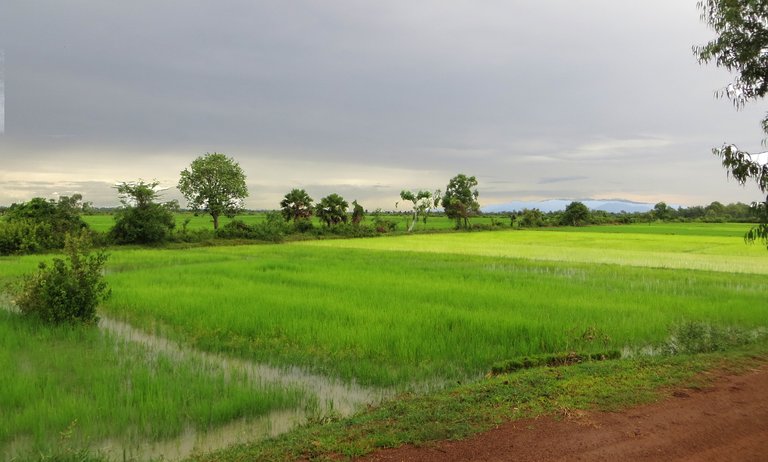
On Saturday, April 18th, 1925, at a little after one in the afternoon, the Frenchman Felix Louis Bardez was beaten to dead by the residents of Kraan Laev, a village in Kampong Chhnang about 100 kilometers from Phnom Penh. Bardez had ten years experience as an administrator in the French Colonial Empire. He was 42 years old. With him, there were two Cambodians slain that afternoon, his militiaman and his translator.
Cambodia was a part of the French Colonial Empire in Southeast-Asia from 1867 until 1953. Bardez was the only French colonial that was killed in Cambodia while performing his duties during the entire colonial period.
Felix Bardez was a career man in the French Empire. He was premier resident, the head of a province, and enjoyed an excellent reputation in tax collection. In November 1924, he was transferred from Prey Veng to Kampong Chhnang province. Taxes were increased significantly, and Kampong Chhnang had the reputation for being a "difficult" region. In 1923, a fugitive murderer was arrested in the temple of Kraan Laev and in January 1924 a Cambodian tax-collector was attacked in a nearby village.
It is unclear why Bardez, in April 1925, decided to go personally to the villages to collect taxes. His timing was certainly very unfortunate. He traveled in the countryside during the week of Khmer New Year, a period of rituals, festivities, and lots of alcohol. On April 18, around 8 am, he arrived at Kraan Laev. He met the local community leader while about five hundred villagers watched on. Bardez complained about back taxes. The local community leader told him there was, unfortunately, no money to pay. Bardez made an ironic comment about the brand new village temple and ordered his militiaman to arrest three random villagers. He stated that the villagers would be released as soon as all the back taxes were paid. He also sent a message to Kampong Chhnang City to ask for military reinforcements.
Despite the arrests and demand for reinforcements, everything remained rather calm in Kraan Laev. Around 11 o'clock Bardez had lunch, prepared by his Vietnamese private cook who traveled with him. After lunch, he was approached by the wife of one of the prisoners. She offered him money to release her husband. Bardez accepted the money but refused to release the man until the full debt was settled. The woman ran to her shackled man. This made the militiaman point his gun at the couple. A villager pushed the gun away. Another one starting beating the militiaman. This escalated quickly. The whole village turned against the visitors. First, the militiaman was slain, then Bardez followed by his translator. The angry mob decided there and then to start a revolution and march on Kampong Chhnang City. Along the way, however, they came across the military reinforcements Bardez has asked for. This was enough to make them all flee into the jungle.
Lynch parties by an angry mob still happen occasionally in Cambodia today. A thief who is caught red-handed or a drunk driver who crashes into kids better hope there are not too many people around. Khmer New Year is still the least ideal week to travel around the countryside. That week-long series of traditional rituals, lots of alcohol and partying always leads to many accidents and some acts of aggression. To visit a remote village during the New Year to collect taxes indicates a very poor knowledge of the country.
Today there is still a Buddhist stupa in memory of Felix Bardez near Kraan Laev, about 15 km from Kampong Chhnang City. Want to know more? A History of Cambodia by the historian David Chandler is the standard work on the history of Cambodia with ample attention to the colonial period. Alternatively, you can check out my other post The Visitor's Guide to Kampong Chhnang to learn more about things to see and do in Kampong Chhnang province, Cambodia.
Interesting! Do you know why Kampng Chhnang was a difficult region in particular? Interested in Khmer history.